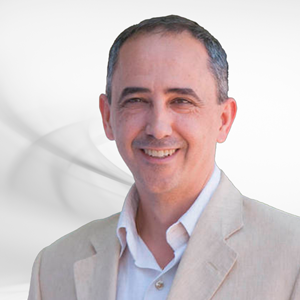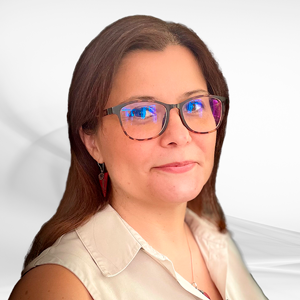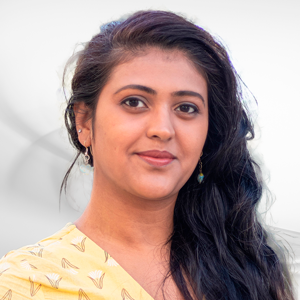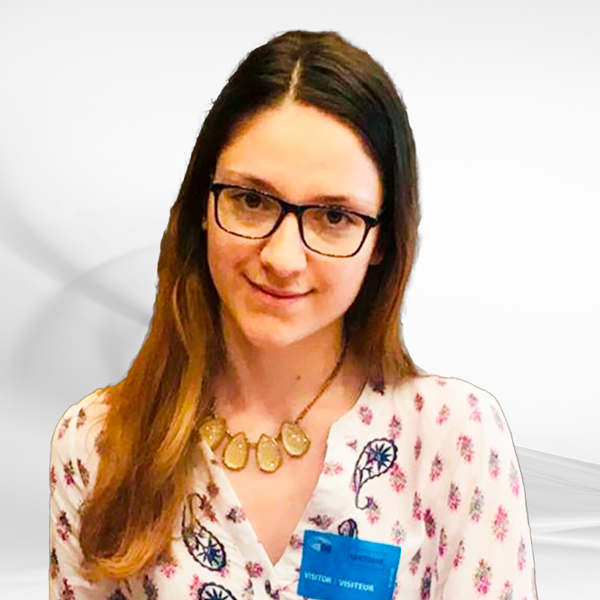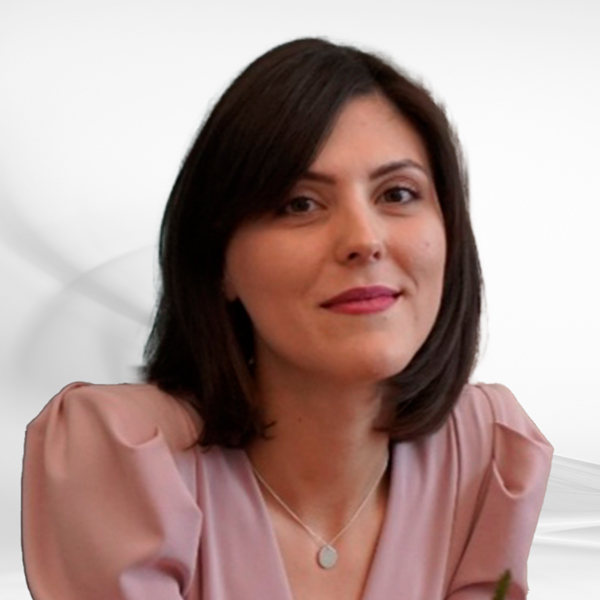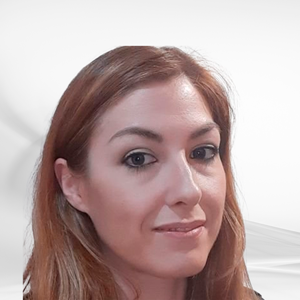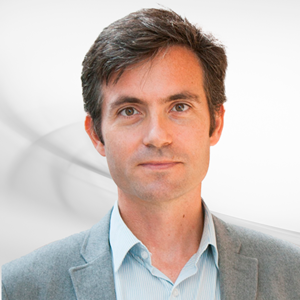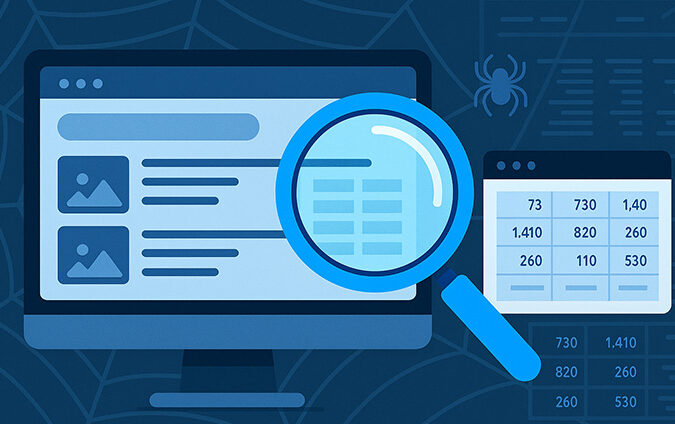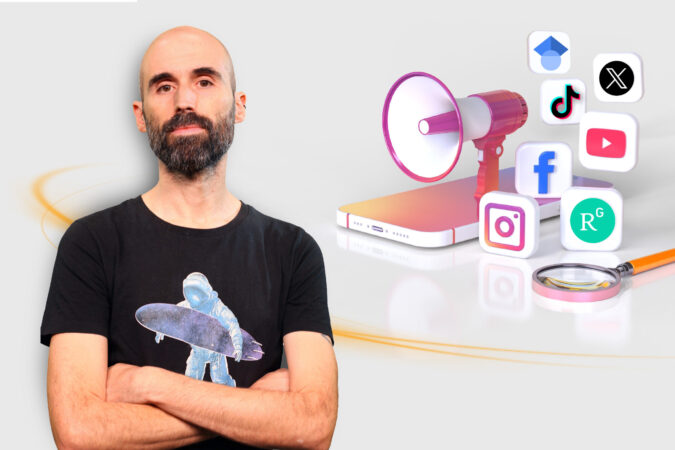Digital Resilience Against Disinformation (DOMINOES)
About this course
Disinformation and misinformation are a growing problem affecting citizens, institutions and the general functioning of society.
To combat this phenomenon, we need to develop a social resilience that prevents public discourse and debate from being distorted, the credibility of institutions from being undermined and the functioning of democratic processes from being disrupted. And this is the task of all of us.
The strategies and techniques used in disinformation processes are becoming increasingly sophisticated and difficult to detect. As citizens, we need to be able to recognise and assess misinformation spread in online environments in order to respond appropriately.
The DOMINOES MOOC will enable you to strengthen your digital resilience to disinformation and improve some of the key competences defined in the Digital Competence Framework for Citizens.
By the end of this online course, you will better understand what disinformation is in the current technological context, how it works, what its impact is and what measures can be taken to combat it.
To this end, DOMINOES provides you with numerous examples, case studies, lessons learned and best practices, simulations and a guide on what still needs to be done and what the biggest challenges are in the fight against disinformation.
We are looking for citizens, students and teachers of social and security sciences who are interested in learning more about the current information system and are engaged in the fight against disinformation.
We need you. Is the duty of each one of us.
The course is developed in collaboration between: “Mihai Viteazul” National Intelligence Academy (MVNIA) – Romania, Ciberimaginario Research Group of the University Rey Juan Carlos– Spain, L-Università ta’ Malta, and New Strategic Center – Romania.
The course is a result of the project DOMINOES, Digital cOMpetences INformatiOn EcoSystem and Strategic partnership project within ERASMUS+ Programme AGREEMENT NO. – 2021-1-RO01-KA220-HED-000031158

What are you going to learn
- Gain a comprehensive perspective on the information environment from a vantage point that focuses on the security of citizens and the state.
- Recognise the new threats associated with the emergence of new technologies.
- Improve the ability to recognise this phenomenon and avoid falling into the trap of spreading disinformation online.
- Assess the impact of Fake News on society and democratic processes.
- Understand the role of social media platforms in the fight against the spread of online disinformation.
- Enhance the ability to combat disinformation by providing general guidance on planning, designing and implementing counter-narratives and positive narratives.
- Understand, through simulated scenarios, that the fight against disinformation is a shared responsibility of all citizens and requires a series of decisions that can favour or contain its spread and its impact on our democratic systems.
Requirements
- This course is particularly suitable for students and teachers of social and security sciences who are interested in the current information system. However, it can be followed by anyone with an interest in the subject.
- Previous knowledge is not required. Your curiosity and interest in improving the information ecosystem are all you need. In any case, you can of course get more out of the course with prior knowledge of communication studies (disinformation, propaganda, media literacy and fake news).
Course Staff
Rubén Arcos, Ph.D.
Universidad Rey Juan Carlos
Associate professor [professor contratado doctor] at the School of Communication Sciences of URJC, and a researcher at the Cyberimaginario group. He serves as Vice Chair of the Intelligence Studies Section at the International Studies Association. Arcos is a member of the expert pool on information of Hybrid CoE and has been appointed national member in the NATO/STO research task group SAS-189 “Anticipatory Intelligence for Superior Decision Making”. He is co-principal researcher of the projects EU-HYBNET, DOMINOES, and INSET. He is co-editor of the Routledge Handbook of Disinformation and National Security.
Manuel Gertrudix, Ph.D.
Universidad Rey Juan Carlos
Professor of Digital Communication at the Rey Juan Carlos University, coordinator of the Cyberimaginary research group, and co-editor of the scientific journal Icono14. Specialist in digital communication and elearning he has participated in seventeen competitive national and international research projects. He has an extensive scientific production with more than 100 publications among research articles, book chapters and monographs. Professor of Digital Communication at the Rey Juan Carlos University, coordinator of the Cyberimaginary research group, and co-editor of the scientific journal Icono14. Specialist in digital communication and elearning he has participated in seventeen competitive national and international research projects. He has an extensive scientific production with more than 100 publications among research articles, book chapters and monographs.
Cristina Ivan, Ph.D.
MVNIA - Romania
Cristina Ivan is Director of the National Institute for Intelligence Studies, “Mihai Viteazul” National Intelligence Academy in Romania and a researcher in security and intelligence studies. She holds a PhD in cultural studies. She also has worked as an intelligence analyst. Over the past 15 years she has specialized in the cultural study of violence, radicalization and terrorism, propaganda and disinformation, critical intelligence studies etc. She has taken an active part in European funded projects such as: EU-HYBNET, DOMINOES, CARSIMAND, ARMOUR
Irena Chiru, Ph.D.
MVNIA - Romania
Professor of intelligence studies at “Mihai Viteazul” National Intelligence Academy Romania and the chair of the International Association for Intelligence Education – European Chapter. In the last 20 years, she has taught more than 200 scientific seminars and colloquia and given more than 30 educational talks on strategic communication and its impact on intelligence organizations. She has also coordinated research teams involved in research projects dedicated to security and intelligence (CITY COP – H2020, CARISMAND – H2020, ESSENTIAL – EJD, CRESCEnt – ERASMUS+, ARMOUR – DIGI Home.).
Aitana Radu, Ph.D.
University of Malta
Lecturer at the University of Malta and the Security Research Coordinator within the Department of Information Policy & Governance. Her research focuses on different aspects of security science, such as open source intelligence and intelligence oversight. She has also worked in over 15 EU-funded projects, focusing mostly on radicalisation, intelligence analysis, judicial procedures and law enforcement practices.
Ruxandra Buluc, Ph.D.
MVNIA - Romania
Senior researcher at the National Institute for Intelligence Studies in “Mihai Viteazul” National Intelligence Academy. Her main research interests are strategic communication, disinformation, conspiracy theories and security culture. She works in European-funded projects which are aimed at building security culture and resilience to disinformation and radicalization.
Kanchi Ganatra, Ph.D.
University of Malta
Political anthropologist specializing in the field of migration within the EU. She holds a Bachelor's degree in Psychology from University of Mumbai and a Master's degree in Anthropology from Tallinn University, Estonia. Kanchi is presently based at University of Malta, where she works as a Research Support Officer. In her current role, she works primarily on EU-funded research projects addressing a wide range of critical topics; including migration, disinformation, radicalization, prevention of sexual violence, and human trafficking, among others.
Valentin Stoian Iordache, Ph.D.
MVNIA - Romania
Valentin Stoian is a researcher with the "Mihai Viteazul" National Intelligence Academy. He holds an MA and PhD in political science from the Central European University. His research interests comprise intelligence theory, political institutions, democratic oversight of intelligence institutions and the ethics of intelligence action.
Alexandra Anghel (Mrs)
MVNIA - Romania
Young researcher at the ”Mihai Viteazul” National Intelligence Academy since 2015. She holds a B.A. in Security Studies and Intelligence from the “Mihai Viteazul” National Intelligence Academy and a M.A. in Integrated Intelligence Analysis from the the “Mihai Viteazul” National Intelligence Academy, Bucharest. She is pursuing a Ph.D. in Sociology, at the Doctoral School of Sociology, University of Bucharest with a thesis on recruiting processes used by military institutions to attract young generations. She has published on Intelligence and Security Studies and has been involved in several European funded project such as CARISMAND, ESSENTIAL, CITYCoP, THESEUS, ARMOuR etc.
Ana Ćuća (Ms)
University of Malta
Ana Ćuća is a Research Support Officer at the Department of Information Policy & Governance at the University of Malta. Specialised in protection of refugees and criminalisation of humanitarian assistance, she is currently working on topics such as migration, security and disinformation. She holds a Master's degree in Human Rights with Clinical Specialisation from the Central European University and a Political Science degree from the University of Zagreb.
Roberta Răducu (Ms)
New Strategic Center (Romania)
Roberta Răducu, Ph. D., is assistant professor at SNSPA and communication expert with New Strategy Center. Her research interests cover topics like generational communication on media devices, generational experiences with media devices, disinformation and propaganda narratives in the Balkans area, crisis communication and social image formation.
Cristina Arribas, Ph.D.
Universidad Rey Juan Carlos
Researcher at Ciberimaginario Research Group within University Rey Juan Carlos, (Spain) and candidate PhD. She holds a Bachelor in History and a Bachelor Degree in East Asia Studies. She also obtained a Master Diploma in Intelligence Analyst. She has worked for several multinationals in the sector of telecommunications and cibersecurity as consultant analyst.
Workgroup
Mario Rajas Fernández
Universidad Rey Juan Carlos
Professor of Audiovisual Communication and Advertising at the Rey Juan Carlos University, co-director of the Ciberimaginario research group and Director of the Cátedra of Spanish Cinema Flix Olé. He has been coordinator of the Audiovisual Production Unit of the URJC and editor of Icono14 Editorial.
Alejandro Carbonel Alcocer, Ph.D.
Universidad Rey Juan Carlos
Dr. Carbonell-Alcocer is a postdoctoral researcher at Ciberimaginario Research Group hired at Rey Juan Carlos University. Master's Degree in Secondary School Training in Audiovisual Communication and Multimedia specialty at Rey Juan Carlos University.
Juan Romero Luis
Universidad Rey Juan Carlos
Holds a PhD in communication sciences from the Universidad Rey Juan Carlos. Master in UX: Usability, Interaction Design and User Experience at Pompeu Fabra University (UPF) (Barcelona School of Management). Member of Ciberimaginario Research Group, in the Science of Communication department.
Alberto Sánchez Acedo
Universidad Rey Juan Carlos
Pre-doctoral researcher with a grant from the Community of Madrid to develop an industrial PhD at Prodigioso Volcán S.L. Currently, he is developing his research on the creation of journalistic models with extended reality. Member of Ciberimaginario Research Group at Rey Juan Carlos University.
Nerea Benítez Aranda
Universidad Rey Juan Carlos
Research assistant in Ciberimaginario Research Group at Rey Juan Carlos University. She has worked in the technical department of the URJC through the collaborative grant «Laboratories and Studio TV». Graduated in Audiovisual Communication at Rey Juan Carlos University and Technician in Higher Level Training Cycle in Audiovisual Projects and Entertainment Production.
Frequent Answers and Questions
Who is this course for?
This course is particularly suitable for students and teachers of social and security sciences who are interested in the current information system.
However, it can be followed by anyone with an interest in the subject.
Previous knowledge is not required. Your curiosity and interest in improving the information ecosystem is all you need. In any case, you can of course get more out of the course with prior knowledge of communication studies (disinformation, propaganda, media literacy and fake news).
What good can it do me?
The strategies and techniques used in disinformation processes are becoming increasingly sophisticated and difficult to detect. As citizens, we need to be able to recognise and assess misinformation spread in online environments in order to respond appropriately.
The DOMINOES MOOC will enable you to strengthen your digital resilience to disinformation and improve some of the key competences defined in the Digital Competence Framework for Citizens.
How can I register?
When does the MOOC start and end?
What certification do I get if I complete it?
How do I communicate and interact with course facilitators, curators or participants?
Do I need to install anything specific on my computer?
Do I have to connect to the platform at specific times to follow the course?
How do I pass the course?
How can I resolve a technical issue with the platform?
RAC credit validation
- 5 Sections
- 49 Lessons
- 25 Hours
- 1. The information environment from a security perspective: trends, threats, vulnerabilities, and future challenges10
- 1.1Conflict and its manifestation in the information environment
- 1.2Hybrid warfare/threats
- 1.3Cognitive and information warfare
- 1.4Disinformation, Fake news, Debunking and pre-bunking
- 1.5Foreign information manipulation and interference (FIMI)
- 1.6Cyber information operations
- 1.7Understanding conspiracy theories
- 1.8Case studies of hostile narratives and conspiracy theories by authoritarian state and non-state actors
- 1.9Understanding hostile narratives
- 1.10Exam
- 2. Understanding the current challenge of disinformation and information manipulation: macroenvironmental and individual aggravating factors11
- 2.1Fact v/s Opinion: Objectivity in the Digital Era
- 2.2Mechanisms used in exploiting vulnerabilities and errors of judgement of fake news audiences
- 2.3Exploitation of errors of judgment and the vulnerability of groups. The Case of Climate Change
- 2.4Democracy and trust
- 2.5Types of trust
- 2.6Subverting trust. Contesting facts, distrusting authority, social polarization
- 2.7Rebuilding trust. How can epistemic and institutional trust be rebuilt?
- 2.8Social media
- 2.9Artificial intelligences and synthetic content
- 2.10Strategies to combat hostile influence
- 2.11Exam
- 3. Mitigating the threat and building resilience to disinformation9
- 3.1Transnational responses to disinformation/FIMI
- 3.2Regulatory responses to disinformation/FIMI
- 3.3Resilience Building
- 3.4Critical Thinking
- 3.5Media and digital literacies
- 3.6Fact-checking and de-bunking
- 3.7How to overcome the weaknesses of de-bunking
- 3.8Pre -bunking – the pro-active approach to combating disinformation
- 3.9Exam
- 4. Advanced analytic and responding toolkit9
- 4.1Strategic analysis of disinformation and information-led hostile influencing
- 4.2Current analysis of disinformation and information-led hostile influencing
- 4.3Combating the effects of disinformation in the online environment
- 4.4Tech-driven solutions and emerging technologies to counter disinformation
- 4.5Limits of Technological Tools, Best Practices
- 4.6Counter-narratives and positive content
- 4.7Planning and design of counter-narratives and positive content
- 4.8Implementation of counter-narratives and positive content
- 4.9Exam
- 5. Simulation exercises, serious and wargaming to combat disinformation10
- 5.1Debunk simulation 1. Know your character and your first mission
- 5.2Debunk simulation 2. Steps to perform the debunk & debunk models
- 5.3Debunk simulation 3. Do your task: make the debunk
- 5.4Deepfakes against deepfakes. Know your second mission
- 5.5Deepfakes against deepfakes. Review your knowledge about deepfakes
- 5.6Deepfakes against deepfakes. Create the deepfake video
- 5.7Disinformation Game. The last mile
- 5.8Disinformation Game. Know your final mission
- 5.9Disinformation Game. Make the right choices to fight misinformation
- 5.10Exam
Cursos que podrían interesarte

No te pierdas nada
Suscríbete a la newsletter
Recibe información sobre nuevos cursos y novedades

